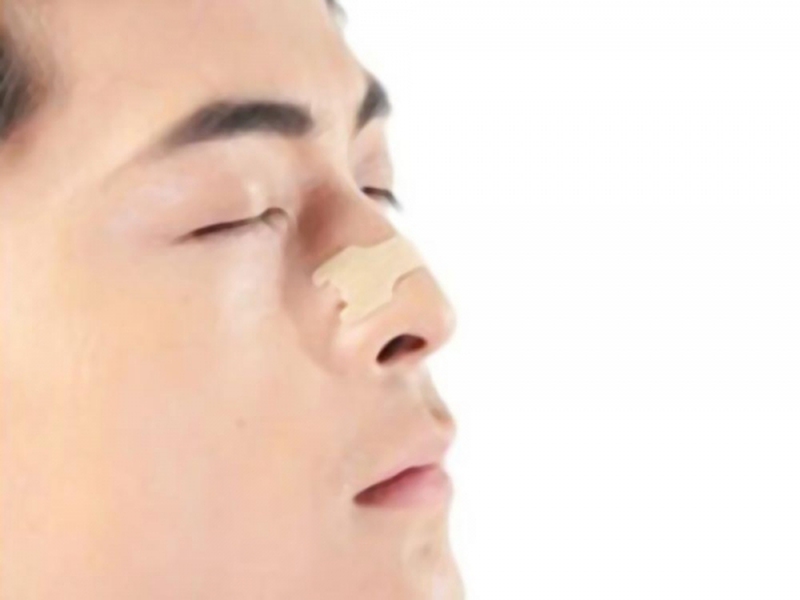Every person snores occasionally and there is no need to worry about it. You may have to worry a little if snoring every night without fail. Snoring can affect the quality of your sleep and also lead to problems like irritability, daytime fatigue, and other health problems. Moreover, snoring can make it difficult for your partner to sleep in your presence and this can sometimes lead to major relationship problems. Therefore, it is important to learn how to stop snoring and prevent these complications. Let's find out more.

Helpful Tips to Stop Snoring
Bedtime Remedies
Your sleeping routines, positions, and habits can greatly affect your sleep quality and even increase your risk of snoring. Here are a few suggestions to make things better.
Correct Your Sleep Position
You are likely to snore more when you sleep on your back. In this position, the back of your tongue collapses to the back wall of your throat, which in turn produces a vibrating sound while sleeping. You can prevent this by sleeping on your side. For this, you can use a body pillow or simply consider taping tennis balls to your back to keep you from rolling on to your back while sleeping.
Practice Good Sleep Hygiene
Poor sleep habits can also contribute to snoring. If you drink alcohol before going to bed, work long hours, or are overtired, your muscles are likely to become floppier, resulting in snoring at night. Then how to stop snoring? Changing those poor sleep habits may help a lot.
Find the Right Pillow
Allergens in your pillows can cause snoring. If you do not wash your pillow regularly, dust mites may accumulate in it and trigger an allergic reaction while you are sleeping. If you feel obstructed at night and feel fine during the day, this could be because there are things in your bedroom contributing to allergic reactions. Change your pillows, wash them regularly, and pay attention to other stuff in your bedroom to ensure you breathe in clean air. Keeping your bedroom air moist at night may also help make breathing easier and prevent snoring as well.
Lifestyle Changes
It is important to make some lifestyle changes as well to stop snoring. You may have bad habits, making it difficult for you to deal with snoring. Here are a few options to consider.
Avoid Eating Too Close to Bedtime
It is better to avoid eating anything too close to bedtime, but you should never consume soymilk and certain dairy products before going to bed. It is also important to avoid eating large meals too close to bedtime.
Include Exercise in Your Routine
Even if you have a busy schedule, it is important to spend a few minutes doing some exercise. A short walk for a few minutes can help manage weight and prevent snoring as well. Regular exercise can tone muscles in your body, including the muscles in your throat.
Drink Plenty of Water
How to stop snoring? Keeping your body well-hydrated is important. Increase your intake of fluids and you will notice a reduction in the severity of snoring. The idea is to prevent dehydration that can make secretions in your soft palate and nose stickier, which in turn increases risk of snoring. Men should aim for 16 cups of water a day, whereas women should drink no less than 11 cups of water daily.
Medical Cures
When lifestyle and bedtime remedies do not work, you may have to work with your doctor to control snoring. Here are some options to consider.
Consider Using Nasal Strips
You can find nasal strips at most pharmacies and have to apply them directly to your nose. While they may look weird, they certainly prove effective in most cases. You can find instructions on the package to apply the strips to the outside of your nose. These strips are effective because they help lift your nostrils and make breathing easier.
Opt for Continuous Positive Airway Pressure (CPAP)
This is a machine designed to help keep your airway open during sleep. You will have to wear a mask that is attached to the machine at your bedside. The machine blows pressurized air into the mask and helps keep your airway open while you sleep.
Use Laser-Assisted Uvulopalatoplasty (LAUP)
The procedure involves using a laser to shorten the uvula. It also involves making a cut in the soft palate – your doctor may make a cut in the sides of soft palate. The surrounding tissues may become stiff when the cuts heal and this prevents excessive vibrations that cause snoring.
Consider Palatal Implants
The procedure involves placing a plastic implant into the soft palate to keep the soft palate from collapsing while sleeping. This in turn will help prevent snoring to some extent.
Go for Somnoplasty
The procedure involves using radiofrequency heat to remove tissues of the soft palate and uvula that vibrate while snoring. Your doctor will perform this procedure under local anesthesia and it usually takes half an hour to complete it.
Use Custom-Fitted Dental Devices
These devices work by keeping your airway open. The devices help keep your tongue and lower jaw forward during sleep. You have to work with a doctor if you want to use these devices.
How to stop snoring? In addition to what have talked above, you can also opt for other surgical procedures depending on how severe your problem is. Some common options include tonsillectomy, thermal ablation palatoplasty (TAP), uvulopalatopharyngoplasty (UPPP), and adenoidectomy.



View All Comments /Add Comment